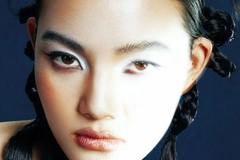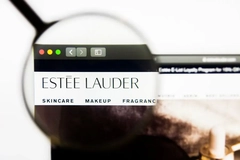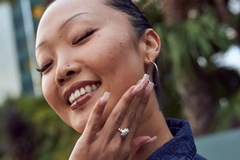Beyond The Headlines: L’Oréal opens US facility to support major brands, Chanel combats fraud with digital verification logo

This week, the personal care industry saw L’Oréal open a research and innovation center in the US and Chanel launched a digital verification e-logo to help customers identify authorized retailers. Meanwhile, the National Medical Products Administration (NMPA) announced updates to China’s Technical Specification for the Safety of Cosmetics.
Business and finance news
L’Oréal Groupe announced the opening of its US$160 million North America Research & Innovation Center in Clark, New Jersey, US. The 250,000-square-foot facility is the company’s largest outside France and will employ over 600 scientists to focus on product innovation, sustainability, and consumer testing. The center will support US brands, including Maybelline, CeraVe, and Redken while collaborating with biotech firms and start-ups. It has solar panels and eco-friendly features to align with L’Oréal’s sustainability goals.

Shiseido’s stock surged 12%, its most significant rise since 2018 after London-based investor Independent Franchise Partners (IFP) disclosed a 5.2% stake in the company. The filing, submitted to Japan’s Finance Ministry, sparked speculation about potential operational and strategic shifts. Given IFP’s history of pushing for corporate changes, investors reacted positively to the possibility of adjustments to Shiseido’s market strategy.
The Perfume Shop announced the expansion of its partnership with Deliveroo, known as Eau De-Liveroo, after a successful trial in 2024. The service offers over 1,000 fragrances for on-demand delivery and was initially launched in cities including London, Manchester, and Glasgow, UK. It proved popular during shopping events like Black Friday. Following its perceived success, the retailer has begun rolling out the service to new locations with further expansions planned throughout the year.
 L’Oréal’s 250,000-square-foot facility is the company’s largest outside France and will employ over 600 scientists.Personal care launches
L’Oréal’s 250,000-square-foot facility is the company’s largest outside France and will employ over 600 scientists.Personal care launches
Chanel unveiled a digital verification e-logo to help consumers identify authorized online retailers of its beauty products. The round black emblem, featuring the Chanel name and “authorized retailer” in white, will be displayed across official e-commerce platforms. This initiative aims to combat counterfeit sales and ensure shoppers can verify the authenticity of Chanel’s cosmetics and fragrances, protecting them from unauthorized or fake products.
Dropsy Redhead Designs created GrabAssure, a makeup grip set designed to help users with dexterity challenges hold beauty products. The launch was developed by makeup artist Jenna Key and inspired by her experience with psoriatic arthritis. The grip features a wrist strap to prevent the user from dropping items. It comes in three sizes to fit various products like mascaras, lipsticks, and brushes.
Hask introduced a five-piece hair care collection featuring RepairPro Technology, designed to strengthen hair, reduce breakage, and improve flexibility. The Repair series includes a scalp serum, hair oils, a leave-in treatment, and a deep conditioner formulated with argan oil to restore damaged hair. The products are vegan, cruelty-free, and free of sulfates and parabens.
Olive Tree People, a waterless beauty brand, launched a campaign to promote its ethos and emphasize hydroxytyrosol and cold-pressed Arbequina oil instead of water and petroleum-based ingredients. The campaign aims to highlight the brand’s commitment to sustainability.
Viemaa released a bond-building hair care collection featuring patented biomimetic cuticle technology designed to repair and strengthen damaged hair. The products use hydrolyzed pea protein to restore broken bonds caused by heat styling, coloring, and environmental stressors. The line includes a shampoo, bond booster, hair mask, leave-in conditioner, styling serum, and repair elixir oil formulated with natural oils like argan, jojoba, and coconut.
Australian skin care and supplement brand Vincent debuted in the US, bringing its apple-derived activated phenolics technology to American consumers. The brand’s four-step skin care routine includes a cleanser, serum, cream, and An Apple A Day supplement. The products are formulated with antioxidants extracted from Australian apples and are designed to promote skin renewal, reduce inflammation, and support collagen production. Viemaa’s products use hydrolyzed pea protein to restore broken hair bonds.
Viemaa’s products use hydrolyzed pea protein to restore broken hair bonds.
Regulatory and sustainability movements
The NMPA announced updates to China’s Technical Specification for the Safety of Cosmetics (2015 Edition), a regulatory document outlining cosmetic testing methods. The updates will add new testing methods for azelaic acid, phenacetin, hydroxydecanoic acid, and three other substances. Additionally, revised methods for testing asbestos and glucuronic acid will replace the previous versions with changes taking effect on July 1, 2025.
L’Oréal Groupe earned a triple-A score from the Carbon Disclosure Project non-profit for the ninth consecutive year, recognizing its work in climate action, forest conservation, and water security. The company achieved 91% renewable energy at its sites, reduced water withdrawals by 54% per finished product, and ensured 93% of bio-based ingredients were sustainably sourced. L’Oréal said it is the only company to receive this score for nine consecutive years.













